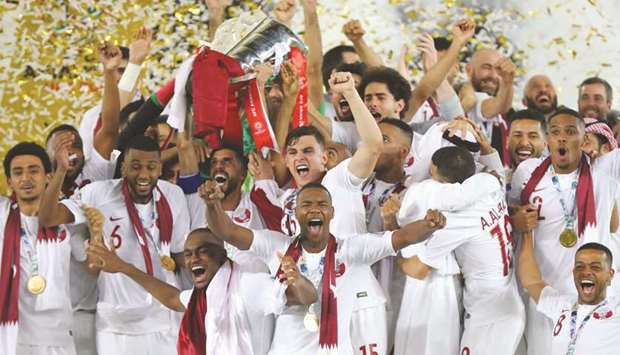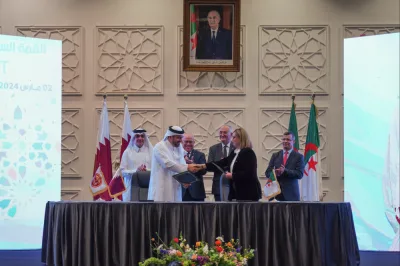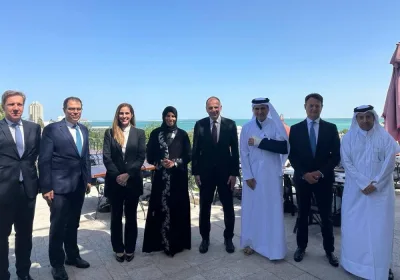It’s been 1,000 days since a senseless blockade on Qatar was initiated by Saudi Arabia and its allies. While many thought it would have a negative impact on Qatari sport, it has turned out to be the exact opposite.
The best example of it came when the Qatar football team defied the odds to clinch their maiden Asian Cup title last year, overcoming hostile environment in the United Arab Emirates, where the tournament was played. While the local spectators hurled shoes and other objects onto the field in frustration at their own team’s failure as the Al Annabi were cruising past the hosts in the semi-finals, Qatar’s players and officials steered clear of distracting controversies as they adhered to their policy of not mixing politics with sport.
In the end, it turned out to be Qatar’s watershed moment in the sporting world, while their regional rivals were left to reflect on what went wrong for their teams. Qatar’s 4-0 victory over the UAE in the semi-finals and then the crowning glory when they beat Japan in the final have few parallels as far as Asia’s sporting history is concerned.
The victory had meant so much to Qatar and it’s people that the football team were given a royal welcome, with His Highness the Amir Sheikh Tamim bin Hamad al-Thani receiving them at airport.
The Al Annabi came back to euphoric crowds, eager to catch a glimpse of the players that have captured the country’s imagination. The players, support staff and Qatar Football Associations were given a red carpet reception as the His Highness the Amir hugged each one of them before placing garlands of roses around the players’ necks. Many of the players and officials, clearly overcome by the occasion, wept tears of joy while singing the national anthem.
The architect of Qatar’s victory, head coach Felix Sanchez, later revealed that the dirty politics the Qatar players were subjected to in the UAE had served as a motivation for the players. “I think the situation gave us extra motivation, there were things which were not fair and equal for everyone and I think the players this gave the players extra motivation,” Sanchez had said, when asked about the impact of playing the tournament in the UAE.
On the mental pressure of the players heading into the semi-final against hosts UAE, Sanchez had said: “The game against the UAE and the reaction to that showed that the players were very focused on their work and at the end of the day they showed professional behaviour. They focused on the field and not on what was happening around.”
National team media officer Ali Salat too said the ‘circumstances’ had inspired the Qatar team. “I didn’t think we would progress that far. Being in the semi-final would have been an achievement with this young team. With the circumstances we went to the Emirates, we just wanted to show we are a good team who can compete,” Ali Salat said.
Even now for captain Hassan al-Haydos it all still feels surreal. “It was one of the greatest moments of my life, especially with the Amir waiting for you at the airport, along with the fans on the Corniche. I was really, really proud. Believe me, I am still thinking about these moments, it’s a dream for me. I am really proud of what we as a team and as a country achieved,” the Al Sadd midfielder says.
Qatar players also achieve major individual honours at the Asian level. Al Sadd defender Abdelkarim Hassan was declared the AFC Player of the Year in 2018, with his teammate and star forward Akram Afif scooping the prestigious award last year.
Before the Asian Cup triumph was achieved, Qatar’s sporting icon Nasser al-Attiyah recorded his third triumph in the Dakar Rally. And al-Attiyah dedicated his latest title to the nation, saying the victory tastes extra special as it came in the midst of a blockade by its neighbours.
“It’s a special victory because Qatar is currently facing blockade by its neighbours. We have always shown we are strong and His Highness the Amir Sheikh Tamim has always given us everything to be strong in sports, this why this victory is very special. Yes I felt more pressure this time because it was a difficult place to race. This was by no means easy so I am quite pleased to win after getting all the support from the country,” al-Attiyah, who had earlier won the world’s most gruelling endurance race in 2011 and 2015, said.

The victorious Qatar team celebrate with the Asian Cup trophy last year.



